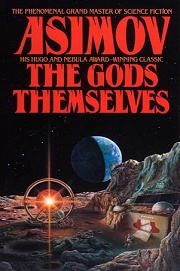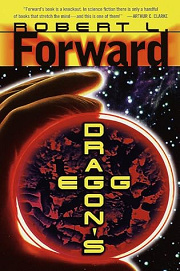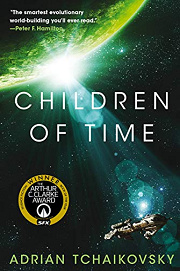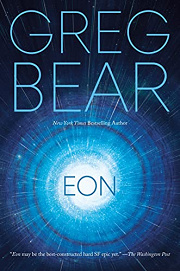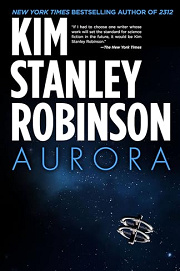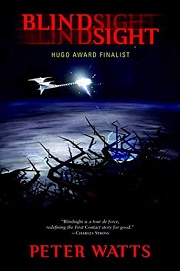Share your thoughts in a quick Shelf Talk!
The Gods Themselves by Isaac Asimov
When a breakthrough in physics promises limitless energy, three very different groups confront the price of progress—across worlds, across agendas, and across the fragile bridge of understanding. Big ideas, bold stakes, and human fallibility collide in The Gods Themselves.
Have you read this book? Share what you liked (or didn’t), and we’ll use your answers to recommend your next favorite read!
Love The Gods Themselves but not sure what to read next?
These picks are popular with readers who enjoyed this book. Complete a quick Shelf Talk to get recommendations made just for you! Warning: possible spoilers for The Gods Themselves below.
In The Gods Themselves, did you enjoy ...
... rigorously plausible physics that drive civilization-scale consequences?
Dragon's Egg by Robert L. Forward
If the electron-pump mechanics and Sun-threatening energy transfer in The Gods Themselves grabbed you, Dragon’s Egg will scratch the same itch. Forward builds an entire neutron-star civilization from first principles, and the plot turns on real physics with the same satisfying clarity that underpinned Lamont’s challenge to Hallam’s “breakthrough.” It’s that heady mix of audacious idea and scientific discipline you loved—only cranked to neutron-star extremes.
... a vividly imagined, biologically coherent nonhuman society?
Children Of Time by Adrian Tchaikovsky
If Dua, Odeen, and Tritt’s triadic culture fascinated you—their alien biology shaping thought, family, and sacrifice—then Children of Time delivers that same thrill. You’ll follow the rise of an entirely different intelligence whose society evolves in ways as surprising and emotionally resonant as Dua’s desperate bid to avert catastrophe in the para‑Universe.
... multiple, sharply distinct story threads that interlock across radically different settings?
Eon by Greg Bear
Enjoyed how Asimov’s triptych—Earth’s academic infighting, the para‑Universe’s intimate drama, and the Moon’s pragmatic problem‑solving—braids into one revelation? Eon similarly weaves viewpoints across Earth and the impossible interior of a wandering asteroid. As with Denison’s lunar investigation dovetailing with Dua’s insights, Bear’s converging perspectives unlock a breathtaking, cosmos‑wide puzzle.
... a rigorous debate over whether a breakthrough technology should be used despite civilization‑scale risks?
Aurora by Kim Stanley Robinson
If the ethical tension of exploiting the electron pump—Hallam’s prestige versus the looming danger Lamont and the lunar team expose—kept you turning pages, Aurora hits the same nerve. Robinson’s starship settlers must decide whether continuing their mission is moral or catastrophic, interrogating technological ambition with the same sober, evidence‑driven urgency that propels Denison’s solution on the Moon.
... idea‑dense first contact that interrogates consciousness and intelligence?
Blindsight by Peter Watts
If you prized the intellectual jolt of Asimov’s revelations—how Dua’s unique perception reframes the physics and ethics of the electron pump—Blindsight offers a deeper plunge. Its expedition confronts an alien presence that forces questions as mind‑bending as the para‑Universe’s laws, delivering that same exhilarating sense of “the ground just shifted under my understanding” you felt at Asimov’s big turns.
Unlock your personalized book recommendations! Just take a quick Shelf Talk for The Gods Themselves by Isaac Asimov. It’s only a few questions and takes less than a minute.
